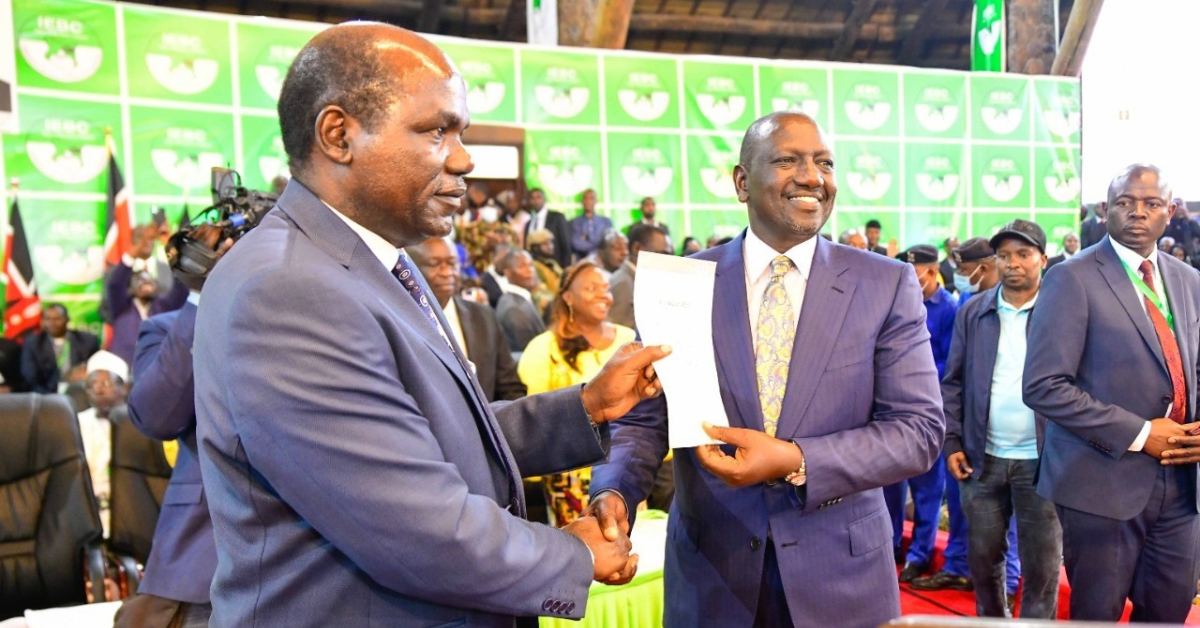The question, asked now more than ever, is this: why can’t the Kikuyu (and the Kalenjin) support a person from a different ethnic community to become president? After all, these two communities have occupied State House continuously for 50 years – effectively since Kenya’s independence. Should Uhuru not step aside and support a presidential candidate from another community to ascend to power?
It is a vexed question brought into sharper relief by the Uhuru-Mudavadi drama. It implies the presidency should – as much as practically possible – be rotated among the different Kenyan communities. There is nothing wrong with this. It sounds fair except it is quite naïve. One way to understand what is going on is to look at our politics through the lens of an equation with two variables and a constant. On one side of this equation we have idealism, on the other, there is realism. And then there is a prayer.
First, political idealism. Political idealism – to simplify a complex topic – is the idea that politics, indeed human relations, must be driven and governed by morally just principles. We are all human and we are inherently good; we should therefore strive to treat each other fairly at all times – so the reasoning goes. Political idealists like to think in terms of collective rights and are likely to be the disciples of the human-rights-for-all gospel. They trade in currencies called hope, equity and charity. They, like John Lennon of The Beatles fame, “imagine all the people living life in peace.”
In our Kenyan politics, these are the people advocating for magnanimity on the part of the Kikuyu. In political orientation, they approximate what may be called liberal and social democrats. They often espouse protection of civil liberties, equal access to power, resources and universal rights. Judging by their utterances, you could say the Coalition for Reforms and Democracy, CORD, belongs to this political idealist persuasion.
Second, political realism. If idealists view politics through peace-in-heaven prisms, idealists have no such blinkers. They understand that, stripped of any pretensions, humankind is fundamentally self-centered, naturally mean and given to selfish tendencies. They belief human nature is hopelessly competitive with an instinct for power play and domination. They look at nature and see chaos, a predisposition to lawlessness and a perpetual fight for survival. Political realists are political converts of Niccolo Machiavelli, the political thinker who believed that, in the pursuit of power, the end justifies the means.
They also tend to be fierce defenders of personal liberty, self-reliance and traditional values.
In Kenyan politics, the Jubilee Coalition, with their talk of family values and ‘love of country’, can be said to embody elements of this political realist outlook.
The contest between these two variables – the idealistic appeal to the better angels in us, and the realistic calling out of the devil within – is really a quest for something quite elusive: lasting peace. Political idealists usually pursue peace through diplomacy; political realists often go to war, or prepare for it, to achieve the same. Both generally fail.
You can vanquish your enemy and achieve supremacy – but evidence from history shows this will only be brief. Similarly, if you put on rose-tinted glasses and appeal for fairness, you will be lucky if this buys you peace of any meaningful duration. Europe tried both approaches and the result was 100 million people dead in two world wars!
Clearly, neither idealism nor realism will cut in political competition. There is a third option – realistic idealism or idealistic realism. Speak softly but carry a big stick.
Democracy – even a semblance of it – is possible as a political practice because, deep down, we value fair competition. And yet we fear to allow democracy to work as it should because deep down, we want the outcome to be pre-determined in our favour.
In The Children of Light and the Children of Darkness (1944), Reinhold Niebuhr, an American theologian and intellectual, put it best when he said: “Man’s capacity for justice makes democracy possible; but man’s inclination to injustice makes democracy necessary.”
The Kikuyu face two basic choices on the vexed question: will they be idealists and support a presidential candidate from another community? Or, will they be realists and hang on to their own for as long as possible? And, will the other contesting communities persuade softly while carrying a big stick? Or, will they opt for realism?
This brings us to a constant about human nature. We can only pray for courage and wisdom. And here again, Reinhold Niebuhr, the author of the Serenity Prayer said it best:
“God, grant me the serenity to accept the things I cannot change;
The courage to change the things I can;
And the wisdom to know the difference.”
A prayer… This is the constant.

